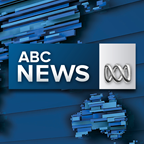
Posted
Surely everyone can agree that children should be protected from the facts of life if it means an adult will be mildly uncomfortable for a few seconds as they explain what's going on.
Who would willingly answer a perfectly normal query about physical anatomy if it means they have to say the word "bum" without laughing? No thanks — I'm not a sinner.
Indeed, a drive-in cinema in Alabama announced last week that it had decided not to screen Disney's remake of its classic film Beauty and the Beast because it featured a gay character.
(That character is Gaston's sidekick Lefou who, according to the film's director, is "confused about what he wants" but at the end of the movie has a "nice, exclusively gay moment".)
"You can feel free to come watch wholesome movies without worrying about sex, nudity, homosexuality and foul language," the Henagar Drive-In said in a Facebook post.
An 'openly gay' character: Has everyone gone mad?
Now, I love a children's film about bestiality and Stockholm syndrome as much as the next person, but an openly gay character?! Hollywood's gone bonkers!
Some people might argue that the inclusion of a gay character is actually a good thing — the Daily Beast, for example, has called it a "welcome and inclusive development".
Such wackadoos claim that LGBTQ young people viewing the film will feel accepted and empowered, knowing they are not alone.
 Photo:
The inclusion of gay character Lefou (left) in Beauty and the Beast has been praised as a "welcome and inclusive development". (Supplied: Disney)
Photo:
The inclusion of gay character Lefou (left) in Beauty and the Beast has been praised as a "welcome and inclusive development". (Supplied: Disney)
Similarly, other films out this year have been praised for portraying diverse stories and characters.
Just last weekend actor Riz Ahmed, who has Pakistani heritage, delivered a speech in which he discussed the importance of diversity in media.
"Every time you see yourself in a magazine, on a billboard, TV, film — it's a message that you matter, you're part of the national story, that you're valued," Ahmed said.
"You feel represented."
But I say we ignore all that — it's a bit too political for my liking.
Why can't we just let kids be kids? Allow them to watch the perfectly normal tale of an abducted girl fall in love with her kidnapper who happens to be a yak! Tale as old as time.
Of course, Beauty and the Beast is not the first example of a family film depicting outrageous and disturbing themes such as normal sexual diversity.
Countless films from the past few years have actually contained hidden messages supporting such disturbing ideologies.
You may have missed them, so here are some downright chilling examples.
Neurodiversity in Finding Dory
This film was a very clever ploy to indoctrinate young children into believing that people with memory loss should be accepted and loved. What rubbish!
Featuring the voice of the famously homosexual and openly female celebrity, Ellen DeGeneres, Finding Nemo also had "gay agenda" written all over it.
 Photo:
Finding Nemo was all a big ploy to convince kids people with memory loss should be loved. (www.imdb.com/)
Photo:
Finding Nemo was all a big ploy to convince kids people with memory loss should be loved. (www.imdb.com/)
Racism in Zootopia
This is a movie about a bunny rabbit police officer named Judy, which depicts various animals being profiled as "dangerous" and subsequently targeted by authorities simply based on their DNA and harmful stereotypes.
What a pleasant fictional romp, I initially thought ... until I read reviews and analyses pointing out its subliminal themes like white supremacy and the war on drugs.
Also: racial profiling and systemic oppression? That definitely never happens in real life!
Feminism in Moana and Frozen
These are just two recent examples of animated films that feature overt misandry. Why else would you present female leads — Moana and Elsa — with no love interest?
It is not clear whether filmmakers were implying that these characters were lesbians, or just hairy, raging feminists, but all we know is that those are the only two options.
Mental health in Inside Out
This Disney-Pixar movie allowed viewers to peek inside a young girl's brain and explore the range of emotions she felt — sad, angry, happy etc — thus highlighting the importance of truly feeling all of them.
Talk about hippy-dippy hogwash!
Back in my day, we were taught to suppress unpleasant feelings and plaster a polite fake smile on our faces.
Next thing you know we'll be teaching our children mindfulness and encouraging them to prioritise mental health instead of numbing themselves with alcohol or gambling.
General political statements in The Lego Movie
This 2014 film is an action-packed, fun-filled treat for the whole family — or at least I thought it was, until I read more about its hidden political messages (it's pro-Marxist, anti-capitalist, against surveillance and anti-police brutality, among other things).
Don't get me started on the new Lego Batman Movie. Apparently this one includes jokes about President Trump.
Can't we spend an hour watching what is essentially a very good ad for Lego without having politics shoved down our throats?
 Photo:
The new Lego Movie apparently contains jokes about President Donald Trump. (Facebook: The Lego Movie)
Photo:
The new Lego Movie apparently contains jokes about President Donald Trump. (Facebook: The Lego Movie)
Of course, the question on everybody's lips is: where to from here?
After all, it's not just homophobic drive-in cinemas in Atlanta. Political leaders in Russia are also calling for a ban of Beauty and the Beast, which they say is gay propaganda.
I suggest we embrace their approach, but broaden it to include all elements of children's films that brazenly depict homosexuality, cultural diversity, anti-oppressive themes or feminism.
After all, it's not like they will encounter any of those issues when they step outside.
Topics: film-movies, popular-culture, children, feminism, sexuality, offbeat









 Add Category
Add Category

